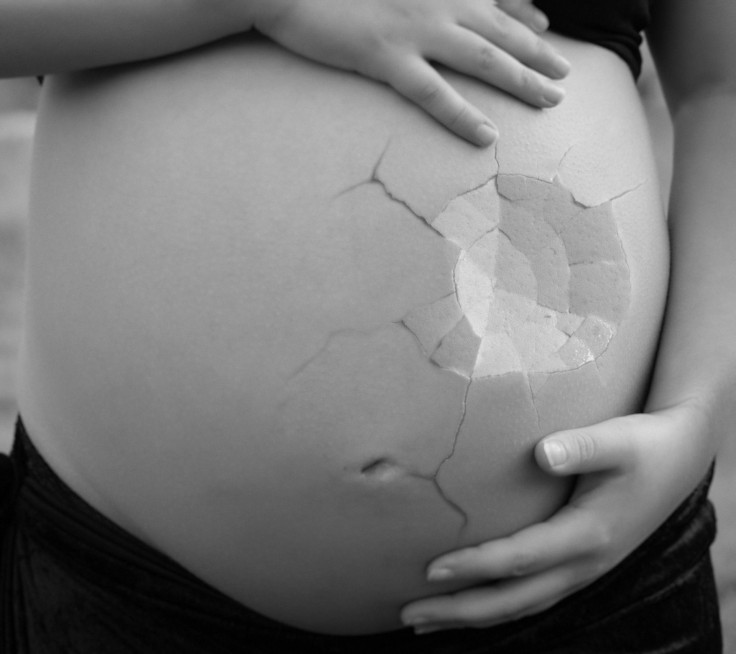Mothers Gaining Weight Excessively During Pregnancy May Put Newborn Babies At Risk Of Childhood Obesity

Mothers-to-be may ricochet between pregnancy food cravings and the desire to keep their baby healthy. But giving in to temptation may result in having a baby who's at risk of unhealthy weight gain for years to come. Researchers from Kaiser Permanente took a closer look at how a mother’s weight gain during pregnancy affects her child during the first 10 years of life. Their study, published in the Maternal and Child Health Journal, may give mothers a reason to watch their weight and blood sugar levels during pregnancy.
"When women have elevated blood sugar and gain excess weight during pregnancy, it seems to change the baby's metabolism to 'imprint' the baby for childhood obesity," said the study’s lead author Dr. Teresa Hillier, an endocrinologist and senior investigator with the Kaiser Permanente Center for Health Research, in a statement. "We're not sure yet of the exact mechanism of this change, but it appears the baby is adapting to an overfed environment, whether from glucose (blood sugar) or extra weight."
For the study, Hillier and her team recruited more than 24,000 mothers from the time of their pregnancy to the first10 years of their children’s lives. Mothers who gained 40 pounds or more during pregnancy increased their child’s risk of becoming overweight or obese by 15 percent compared to mothers who gained fewer than 40 pounds. Meanwhile, every mother who had elevated blood sugar during pregnancy put their child at a higher risk for childhood obesity. Children born to mothers who had gestational diabetes were at the greatest risk, however.
The researchers found even babies who were born a normal weight between 5.5 to 8.8 pounds at birth were at increased risk for ending up as another obese child. The researchers believe the mother’s sharp increase in sugar levels influences the baby’s metabolism, ultimately altering their risk of becoming overweight or obese before they’re even born.
Guide to Gaining Pregnancy Weight
So how much weight is considered healthy? According to Parents Magazine, weight gain is good for the baby, but it’s important to have a slow and steady gain to keep the weight within a healthy range. In the first trimester, it’s recommended to gain a total of 3 to 5 pounds by eating an extra 200 calories a day. In the second trimester, mothers-to-be should gain at a rate of 1 pound per week for a total of 12 to 14 pounds by eating an extra 400 calories a day. By the time mothers hit their third trimester, they should gain up to 1 pound per week, for a total of 10 to 14 pounds, by eating an extra 300 to 500 calories a day.
But weight gain changes depending upon the amount of weight the woman was before she became pregnant. According to March of Dimes, if a woman was at a healthy weight before she became pregnant, gaining between 25 to 35 pounds is perfectly healthy by the time she comes to term. But if she was underweight before pregnancy, gaining between 28 to 40 pounds is important to keep the baby healthy. If the woman was overweight before pregnancy, limiting weight gain to 15 to 25 pounds is important. And for those who were obese before pregnancy, gaining about 11 to 20 pounds helps keep the pregnancy on the safe side.
"We can't wait until the baby is born to determine and address the impact on childhood obesity," Hillier said. "We need to intervene during the mom's pregnancy to help her with nutritional and lifestyle changes that will result in healthy weight gain, healthy blood sugar, and ultimately, healthy children."
Source: Hillier T, Pedula K, Vesco K, Oshiro C, and Ogasawara K. Maternal and Child Health Journal. 2016.
Published by Medicaldaily.com



























